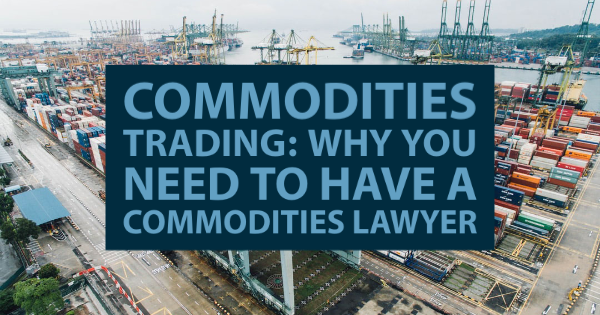
Fraud schemes in the commodities and futures markets are at an all-time high. In 2019, plaintiffs filed over 433 new class action securities cases in federal and state courts. This is the highest number on record, and the third consecutive year running that the numbers have surpassed 400 case mark. More whistleblowers are turning to commodities lawyers to argue their cases in court or to take them through the arbitration process.
Commodities and Future Markets Regulation
The US Commodities Futures Trading Commission (CFTC) is the body tasked with establishing measures to combat fraud in the spot and derivative markets. The commission established by congress in 1974 works under a statutory framework of the Commodities Exchange Act (CEA). If you suspect fraud in the market, a commodities lawyer may help you file a complaint to the CFTC as a whistleblower.
The CFTC defines a commodity as goods sold in their purest form with full or substantial fungibility across the market. More specifically, the products must be in raw-state, usable upon delivery, and on-demand in the market without any qualitative differentiation.
The commodities futures trading offers lucrative investment options in which traders buy and sell contracts for the purchase of commodities in the future. The markets are highly volatile, with trading recommended for savvy and risk-averse investors. The promise of highly lucrative returns open channels for con artists to fraudulently manage their client’s investments. You need to have a commodities attorney to guide you through futures and securities legal issues.
The CFTC is mandated to establish regulatory guidelines that control the futures markets. Congress has expanded the agency’s mandates over the years, with the most notable review being the Dodd-Frank Wall Street Reform that gave the regulator jurisdiction over the swap markets. The CFTC Division of Enforcement also established a whistleblower program that rewards persons that report cases of scams in the futures markets.
Futures and Commodities Fraud
With the rapidly expanding online market for commodities, fraudulent cases have been on the rise. Here are some of the common examples of scams that the con-artists deploy.
- Unauthorized Trading: The con makes trades on your account without prior authorization. The fraud usually spreads to churning, where the person authorized uses the investor account to profit from commissions rather than generate returns for you.
- Non-Disclosure and Misrepresentation: The investor has a right to certain information, such as risk involved in an investment. If the party withholds or gives false statements, the act may be considered as fraud.
- Wash Sales: Involves selling a commodity for less than its current value to reduce taxes on capital gains. Additionally, some brokers may confirm an order without actually executing it to earn more within the price fluctuations.
Call a Commodities Lawyer if You Suspect Fraud
If you suspect manipulation on the management of your futures contracts, seek commodities litigation services and file a complaint with the CFTC. Keen knowledge in futures and securities may be necessary to be able to bring the scam artists to justice.
In Conclusion
Fraudulent schemes are still prevalent even with the tight regulations set by the CFTC. A commodities lawyer will help you go after the con-artists and recover some of your losses. Feel free to reach out to them anytime you need a commodities attorney.

No Responses